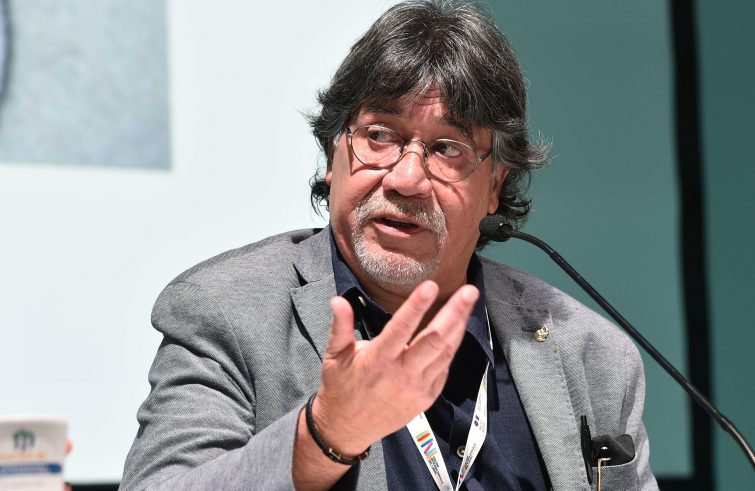
Thus even literature pays its toll. Luis Sepulveda Calfucura left us, at the age of seventy, thousands of miles from Chile. He died today in Oviedo, Spain, where he had been living for some time, due to Covid-19.
” The story of a Seagull and a cat who taught her how to fly” sold over 9 million copies along with “The old man who read love stories” and many other novels that brought to life – into a creative content suspended between fairytales, dreams, politics, memory and nostalgia – characters that were to become famous, and not only among literary experts.
He left Chile after the military overthrew the government of Salvador Allende (Sepulveda was an active part of the GAP, the personal guard of the Chilean president killed in the 1973 coup, jailed for almost three years). He was later greatly involved in the activity of Greenpeace, for the protection of the sea and land, against pollution and the slow –albeit continuous – destruction of our ecosystem.
His were also fairy tales, in the sense that, as often happens in fairy tales they talked to children to be heard by adults, with animals warning humanity on the true meaning of “civilization”. Its impact is far from painless, Sepulveda explained and recounted, not only on animals, but on glaciers, water, grass, on the inhabitants of planet Earth who pursued paths other than those of “civilization”: the indigenous peoples with whom he lived for some time, understanding the limits of his gaze as a “civilized” person, since living in close contact with nature and its products implied the crisis of his Marxist ideology, based entirely on industrialization and modern means of production.
He led a courageous life, not only because of his activism and defence of the most vulnerable but
for his courage to challenge age-old beliefs and combat, free of ideological prejudices, for the paramount benefit of life in close contact with nature.He stands as an exemplary model of utmost coherence, epitomizing the capacity to reconcile his own – and other people’s – stories with real, seemingly ordinary, everyday life. Which is more heroic, as many have taught us, than one might imagine.
On the condition of not giving in to the discouragement of fighting for what is good, which does exist.
This he communicated to us. In fact he narrated it to us, but this teaching has distant origins (we find the same wisdom in a Canticle and a papal encyclical bearing the same name). It is named the future of man in close contact – and in harmony – with Mother Nature.









